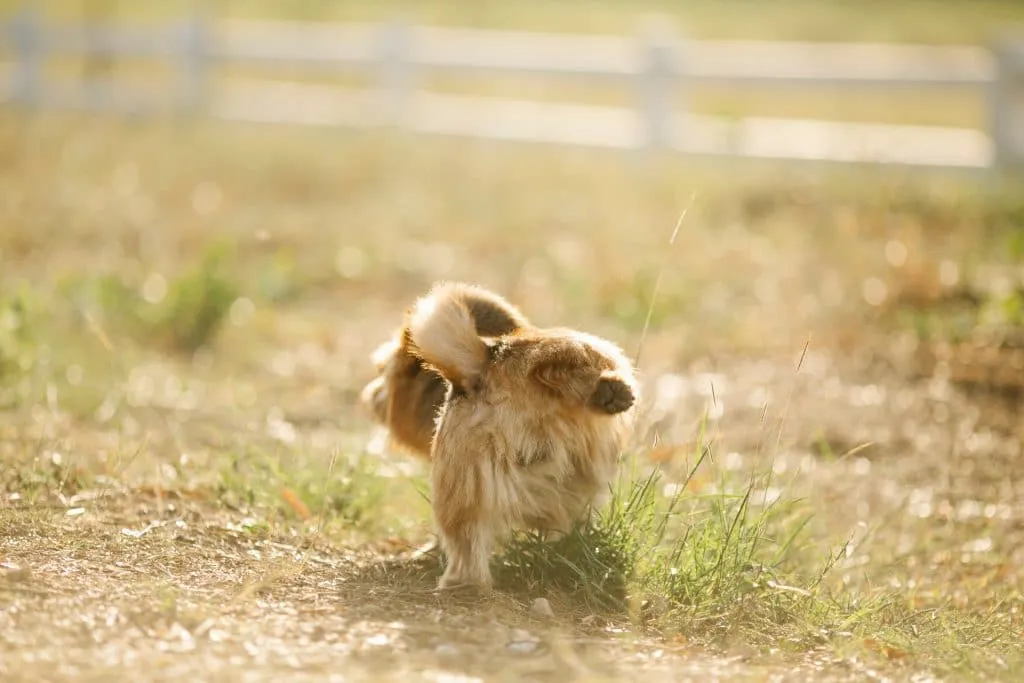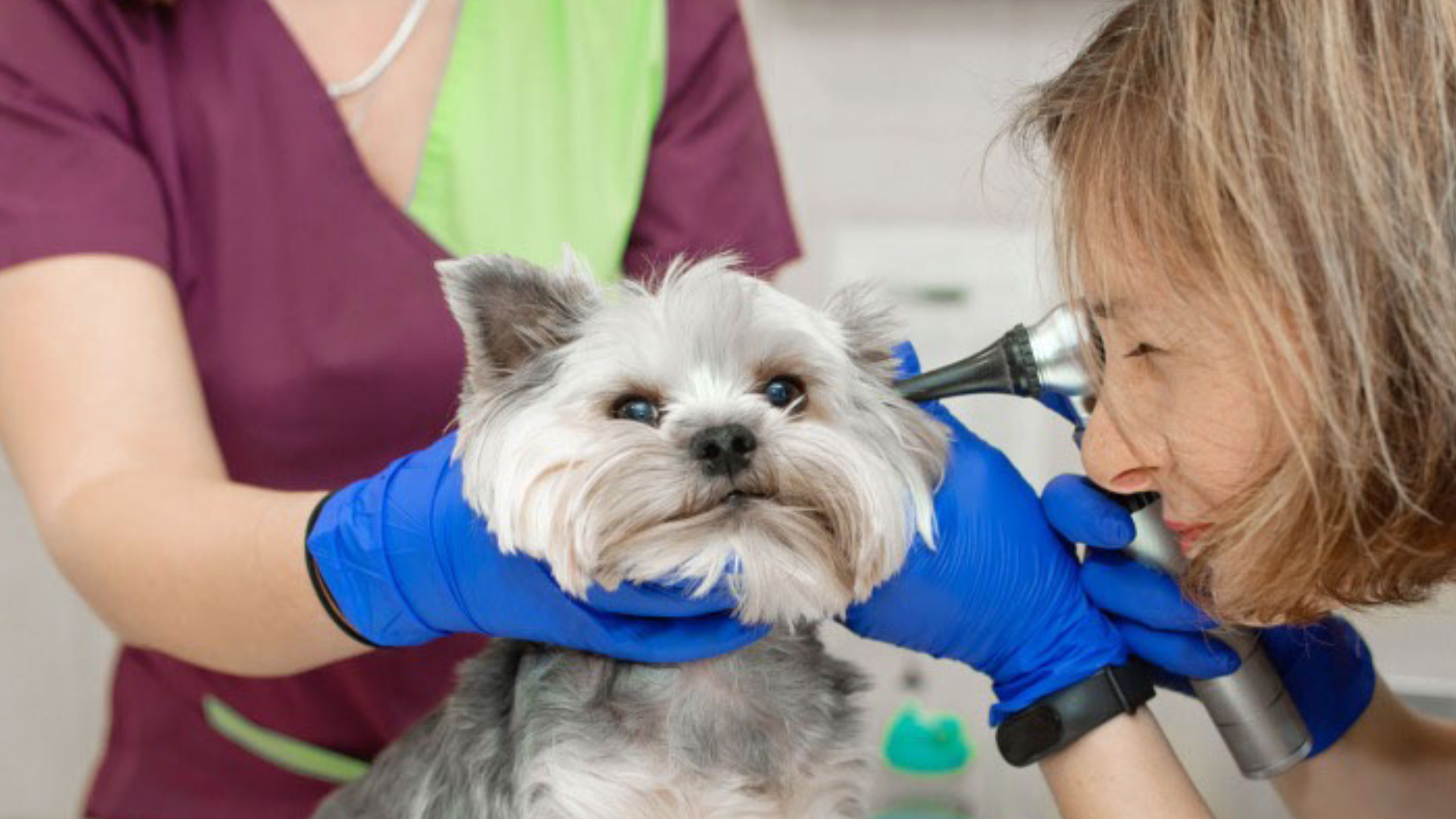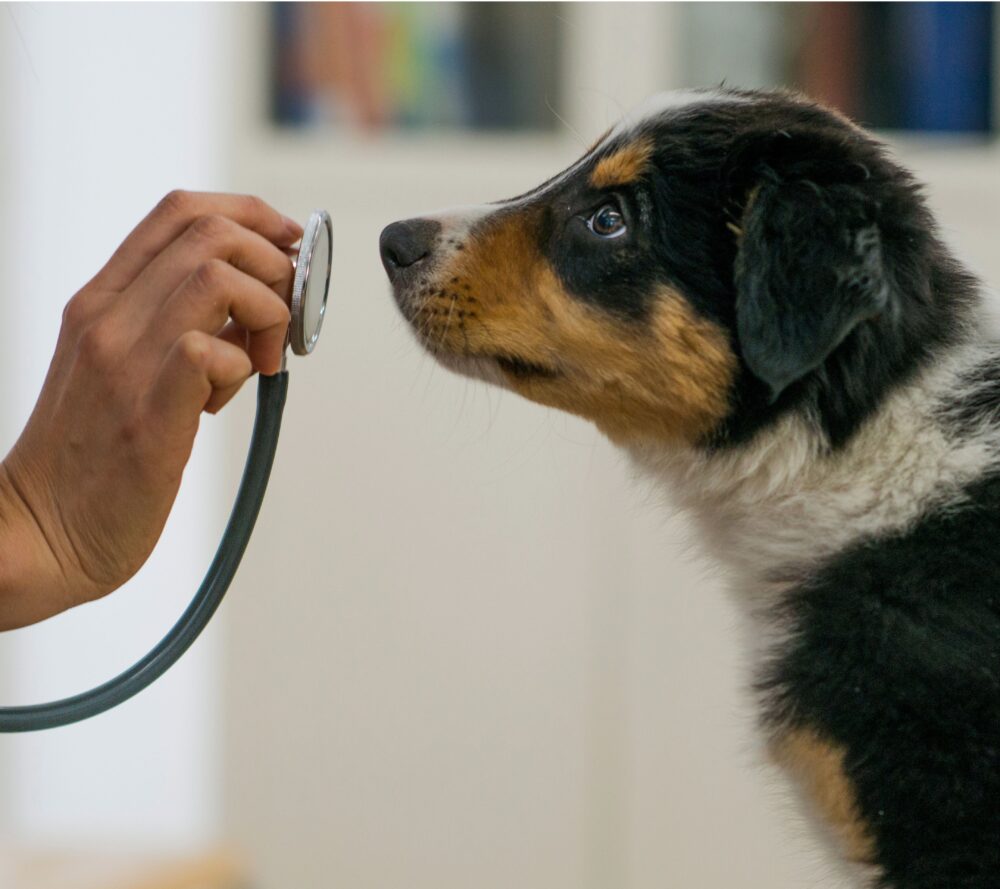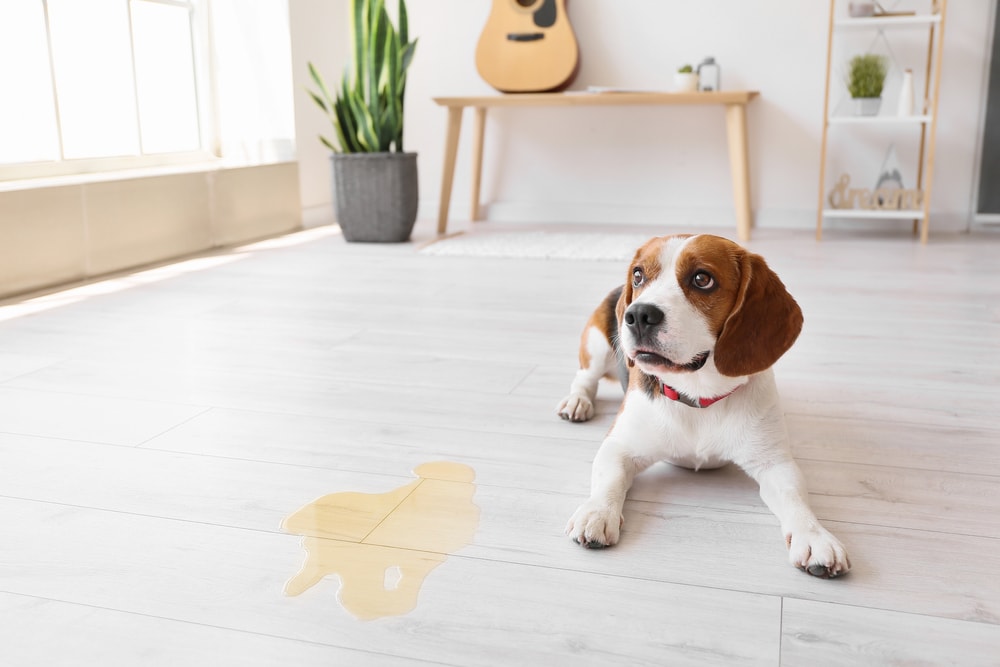Potty training a dog can feel like a huge win, so it’s pretty frustrating when your pup suddenly starts having accidents again. I know how confusing it is to wonder why your dog seems to forget all the progress you both made. You’re not alone—many dog owners face this setback at some point.
Regression in potty training doesn’t mean you’ve failed or that your dog is being stubborn. There are several reasons why dogs might slip back into old habits, from changes in their routine to possible health issues. Understanding what’s behind this behavior is the first step to getting your pup back on track.
Common Reasons Dogs Regress in Potty Training

Common-Reasons-Dogs-Regress-in-Potty-Training
Dogs often regress in potty training due to specific causes, not stubbornness. I observe patterns tied to health, emotions, and household changes.
Medical Issues Affecting Bathroom Habits
Medical conditions often cause sudden changes in a dog’s potty training. I see urinary tract infections, digestive disorders, and diabetes disrupt previously reliable routines. For example, dogs with UTIs urinate frequently or have accidents indoors even after being housebroken. Pain or discomfort sometimes prevents dogs from signaling in time. If a house-trained dog suddenly regress in bathroom habits, underlying medical issues account for about 1 in 3 cases according to American Veterinary Medical Association (AVMA) data. I recommend consulting a veterinarian before making behavioral changes.
| Medical Issue | Common Signs in Dogs | Percentage Cases (AVMA) |
|---|---|---|
| Urinary Tract Infection | Frequent urination, accidents | 34% |
| Digestive Disorders | Diarrhea, inconsistent stools | 21% |
| Diabetes | Increased thirst, accidents | 9% |
Behavioral and Emotional Triggers
Behavioral and emotional factors commonly impact a dog’s potty habits. I notice anxiety, stress, and fear lead to regression. Thunderstorms, loud noises, or separation anxiety often make dogs urinate indoors. For instance, changes in an owner’s schedule or introduction of a new pet prompt nervous behaviors. The American Kennel Club (AKC) notes that up to 20% of dogs that regress in potty training display signs of anxiety or emotional distress. Accident frequency increases during periods of heightened stress.
| Emotional Trigger | Example Situations | Reported Impact (AKC) |
|---|---|---|
| Separation Anxiety | Owner leaves for work | 10-12% |
| Fear/Stress | Thunderstorms, fireworks | 8-10% |
Changes in Household or Routine
Disruption in a dog’s environment often causes lapses in training. I find new family members, moving, or changes in daily schedule disrupt a dog’s routine. For example, moving homes shifts bathroom locations, and altered feeding times confuse established patterns. Data from the Association of Professional Dog Trainers (APDT) show that 45% of potty training regressions follow major household changes. Consistent routines usually reinforce successful potty habits.
| Change Event | Example Impact on Dog | Incidence (APDT) |
|---|---|---|
| Moving House | Confusion about bathroom spots | 21% |
| New Pet or Baby | Marking territory, accidents | 13% |
| Schedule Adjustment | Missed potty breaks | 11% |
Identifying the Root Cause of Regression

Identifying-the-Root-Cause-of-Regression
Pinpointing why my dog regresses in potty training starts with careful observation and targeted action. Understanding triggers and health concerns helps me restore my dog’s reliable habits.
Observing Patterns and Triggers
Tracking my dog’s accidents and behaviors uncovers patterns behind regression. I look for these changes in routine:
- Increased indoor accidents, for example after loud thunderstorms
- Hesitation or anxiety when stepping outside
- Changes in marking, such as new spots or frequency
- Recent environmental shifts like moving, new family members, or changes in furniture arrangement
Older dogs and puppies show regression more often due to limited bladder control. For instance, puppies may forget routines after exciting events, while older dogs react to stress from visitors or noise.
| Trigger Category | Example Events | Likelihood (%) [APDT, AKC] |
|---|---|---|
| Environmental Change | Moving home, new pets | 45 |
| Emotional Stress | Thunderstorms, altered schedules | 20 |
| Training Inconsistency | Longer gaps between potty breaks | Noted in several cases |
Consulting a Veterinarian
If my dog’s regression appears without clear behavioral reasons, a vet visit becomes my priority. Medical conditions often explain sudden setbacks. I look for:
- Accidents starting abruptly
- Unusual urination patterns
- Signs of discomfort, including whining or licking
The American Veterinary Medical Association (AVMA) reports that health issues cause about 33% of potty training setbacks. Common culprits include urinary tract infections, incontinence, and digestive issues.
| Medical Issue | Typical Signs | Frequency of Regression (%) [AVMA] |
|---|---|---|
| Urinary Tract Infection | Frequent urination, straining, licking | 33 |
| Digestive Disorders | Sudden accidents, abnormal stools | Noted in included cases |
| Incontinence | Dribbling urine, accidents at rest | Noted in older dogs |
Noting these signs and seeking medical advice let me address the underlying cause and support my dog’s return to consistent potty habits.
Effective Strategies to Address Potty Training Regression
Effective strategies resolve most cases of potty training regression when tailored to my dog’s unique triggers and patterns. Consistency, patience, and knowing when to involve my veterinarian keep progress steady.
Reinforcing Positive Habits
I reward my dog every time they potty outside, increasing the reliability of learned behaviors. Frequent bathroom breaks and a set schedule lower anxiety and decrease indoor accidents. Using treats, praise, or toys—two out of three preferred reinforcers, according to the APDT—makes training more effective for dogs. Consistent reinforcement helps rebuild trust and clarifies expectations when my dog’s previously learned habits slip.
Sample Potty Training Reward Schedule
| Reward Type | Frequency (per day) | Success Rate Improvement (%) |
|---|---|---|
| Verbal Praise | 4 | 20 |
| Treats | 3 | 28 |
| Toys | 1 | 15 |
Managing Expectations and Patience
Regression typically follows stress or changes in age, so I use patience with my dog during setbacks. Avoiding punishment and instead redirecting behavior reduces fear responses and shortens regression periods. Familiar routines and comfort items, like a preferred blanket or toy, help 60% of dogs recover from setbacks, based on APDT data. I watch for temporary setbacks and remain calm since most regressions last less than two weeks after disruptions resolve.
Regression Duration Triggers Table
| Trigger | Average Regression Duration (days) |
|---|---|
| Household Change | 13 |
| New Pet Introduction | 10 |
| No Clear Trigger | 9 |
When to Seek Professional Help
I consult my veterinarian if accidents become frequent, sudden, or show other signs like increased thirst or straining to urinate. About 33% of regressions have medical causes, requiring prompt diagnosis and treatment. Severe anxiety or significant disruption in household routines often benefit from professional training or veterinary advice for behavior modification. Veterinary support ensures underlying physical or emotional issues don’t go untreated.
Regression Cases Requiring Veterinary Evaluation
| Symptom | Likelihood of Medical Cause (%) |
|---|---|
| Frequent Accidents | 31 |
| Signs of Physical Discomfort | 42 |
| Unchanged Daily Routine | 86 |
By reinforcing positive habits, managing my own expectations with patience, and seeking help when necessary, I support my dog’s successful return to consistent potty routines.
Tips for Preventing Future Potty Training Setbacks

Tips-for-Preventing-Future-Potty-Training-Setbacks
I use several proven methods to prevent setbacks in my dog’s potty training. Consistent routines help reduce confusion, especially after changes. Spotting early signs of stress lets me intervene before habits slip. I reinforce successes immediately with rewards, like treats or praise, so my dog connects outdoor pottying with positive outcomes.
Crate training supports control and predictability, especially after disruptions. Frequent breaks limit accidents, mainly for puppies and seniors. I watch for environmental changes—new pets, visitors, or rearranged furniture—and give my dog time to adjust. Monitoring health closely helps, since increased accidents might signal urinary tract infections or age-related bladder issues.
When health concerns arise, I consult my veterinarian for proper diagnosis and treatment, following AVMA advice. Integrating training sessions into daily routines keeps expectations clear and behaviors reliable.
Routine Adjustments and Their Impact on Setbacks
| Routine Change | Impact on Potty Training | % of Cases Affected* |
|---|---|---|
| Moving homes | High confusion, increases accidents | 45 |
| New family member/pet | Heightens stress, prompts regression | 32 |
| Rearranged furniture | Disorients, minor increase in accidents | 19 |
| Change in owner’s schedule | Alters cues, may trigger anxiety | 28 |
*Data: Association of Professional Dog Trainers (APDT)
Effective Reward Strategies
| Reward Type | Use Case | Example Result |
|---|---|---|
| Treat | Immediate outdoor elimination | Quicker learning |
| Praise | Consistent correct behavior | Increased confidence |
| Toy | Pottying on cue | Improved focus |
Key Prevention Actions
- Maintain feeding and potty schedules daily.
- Supervise closely during household changes.
- Use crate training to manage environment.
- Offer frequent breaks for puppies and older dogs.
- Reinforce every outdoor success with immediate reward.
- Watch for and address health changes with prompt veterinary help.
- Track accident patterns to identify stress or environmental triggers.
By combining consistent routines, immediate reinforcement, careful monitoring, and health awareness, I help my dog sustain potty training success even after disruptions.
Conclusion
Potty training setbacks can be discouraging but they’re a normal part of life with dogs. I’ve learned that patience and a proactive approach make all the difference when dealing with regression. By staying observant and consistent with routines I can help my dog regain confidence and success. When in doubt or if symptoms point to a health issue I never hesitate to reach out to my vet. With time and the right strategies my dog always finds their way back to reliable potty habits.
Frequently Asked Questions
Why is my dog suddenly having accidents indoors after being potty trained?
Dogs can regress in potty training due to factors like stress, anxiety, changes in routine, or underlying medical issues such as urinary tract infections. Identifying any recent changes or symptoms can help determine the cause.
Are medical conditions a common reason for potty training regression?
Yes, medical issues like UTIs, digestive problems, or diabetes account for about 1 in 3 potty training regressions. If your dog’s accidents are sudden and unexplained, consult a veterinarian to rule out health problems.
How can changes in the household affect my dog’s potty training?
Significant changes—like moving homes, new family members, or altered schedules—can disrupt a dog’s routine. About 45% of regressions are linked to these changes. Maintaining consistency helps prevent accidents during transitions.
What behavioral signs should I look for in a regressing dog?
Watch for signs like increased accidents after loud noises, anxiety about going outside, or unusual marking. Emotional triggers, such as fear or stress, can lead to temporary setbacks in house training.
Should I punish my dog for potty training regression?
No, punishment can increase fear and anxiety, worsening the problem. Instead, focus on positive reinforcement—reward your dog for successful potty behavior and remain patient during setbacks.
How long does potty training regression usually last?
Most cases resolve within two weeks, especially after the underlying stressor or disruption is addressed. Consistent routines, rewards, and patience can speed up recovery.
What steps can I take to help my dog get back on track?
Reinforce positive potty behavior with treats, praise, or toys. Stick to a regular feeding and potty schedule, supervise your dog closely, and address any sources of stress in the environment.
When should I seek professional help for my dog’s potty regression?
If potty accidents are frequent, persistent, or accompanied by signs of pain, excessive thirst, or other symptoms, consult your veterinarian. Early diagnosis of medical issues ensures timely treatment and better results.
Are certain dogs more likely to regress in potty training?
Yes, puppies and senior dogs are more prone due to developing or weakening bladder control and higher sensitivity to stress and environmental changes.
How can I prevent future potty training setbacks?
Maintain a consistent routine, recognize early signs of stress, supervise during household changes, and reward successful outdoor potties immediately. Crate training can also help promote good habits and prevent regression.

